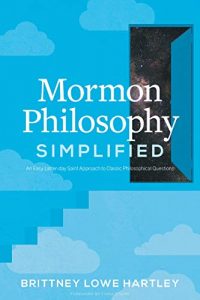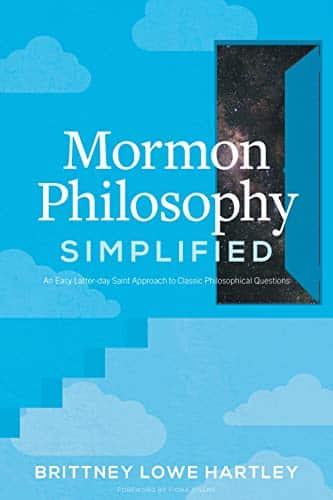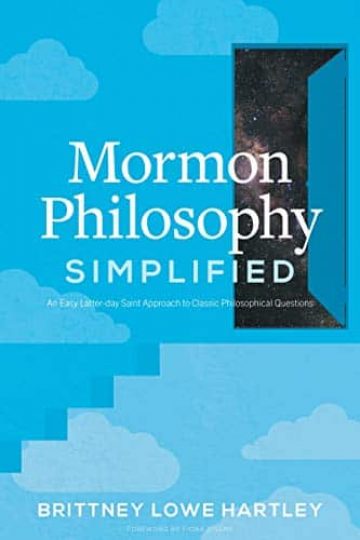 I was very excited to read this book! I had studied Philosophy a bit in college years ago and was especially interested in learning about LDS philosophy. This book is very well-researched, well-written, and it will open your mind to many new perspectives and ways to think about things. It definitely did this for me, even though I’d studied philosophy before.
I was very excited to read this book! I had studied Philosophy a bit in college years ago and was especially interested in learning about LDS philosophy. This book is very well-researched, well-written, and it will open your mind to many new perspectives and ways to think about things. It definitely did this for me, even though I’d studied philosophy before.
You don’t have to know anything about philosophy in order to understand this book. The book begins by explaining what philosophy is and it does this in a simple way. The entire book is written in a way that’s easy to understand for most people, which I appreciated. Some of the topics it talks about are the nature of God, the problem of evil, free will, and ethics. The author also addresses time and the LDS belief of intelligences, which is something I’ve always found fascinating. This book seems to cover everything: Kolob, calling and election made sure, polygamy, priesthood ban, and other issues from history. The author also covers examples from LDS history and the scriptures as well, such as Nephi murdering Laban.
One of my favorite things in the book is the definition of faith. The author gives a new perspective about faith I’d never heard before. “True faith…is not defined as belief without reason. In the scriptures, faith is more often defined as being true to one’s spiritual experiences….Faith is its own kind of evidence, the evidence of things unseen, but still evidence nonetheless” (19). There are many other pronouncements similar to this throughout this book, which encourage the reader to see beyond, to think about more than the usual church answers we always hear.
One of my favorite things about this book is that it gives the reader the desire to learn more, to seek and discover new truth. It often talks about working through the hard questions (and I have many!) and how it’s a process that takes time.
“It’s the process of building, tearing down, and rebuilding our knowledge, and the struggle of developing our character to match it” (49).
The author mentions that sometimes members feel uncomfortable with difficult questions and mistake this feeling as meaning that they shouldn’t think about these questions. “There is this idea that if we are discussing something and we disagree, the spirit inevitably leaves. Sometimes…this feeling of discomfort or awkwardness does not automatically mean contention” (262). This is a great point because many members will not discuss certain things because they don’t want to face the discomfort of it.
My favorite parts were the problem of evil and the ethics chapters, since these are things I often think about and struggle with trying to understand. At the end of the chapter on ethics, the author lists several ethical dilemmas that are real things that people may struggle with. The ethical dilemmas are about the gray areas, situations that don’t have any clear answers. The dilemmas explore issues such as whether someone should follow their duty or follow their conscience. For example, one dilemma asks whether a person should turn down a calling if they feel bad about accepting it. Another dilemma asks whether an auxiliary leader should follow her own inspiration or run the class in the way the bishop wants. Another asks whether an illegal immigrant can answer yes to the temple recommend question about honesty. And so on. There are questions about garments, euthanasia, homosexuality, honesty, and abortion.
“Ethical questions are meant to be wrestled with, just as there was no scripture able to perfectly tell Nephi what to do when he came across Laban” (256).
In the Application chapter at the end, the author gives some ideas of how to apply our beliefs to our life, such as developing a personal code. She mentions that if one feels overwhelmed, they can start with what they know and take a step from there (263). I’d have to say that my favorite part was the Application chapter and the Epilogue. In the Epilogue, the author gives a deeper view of the story of The Good Samaritan, and compares it to the struggle of trying to find answers to difficult questions. “I hope this…conversation challenged you to bring your entire self…to the table when considering the ultimate reality of things” (273). I absolutely loved this book and the way it was written. I loved the way it made me feel and how it enlightened my mind. This will definitely be a book that I will come back to again and again in order to think about things more deeply. I highly recommend it and I’m sure you will find it enlightening as well.



